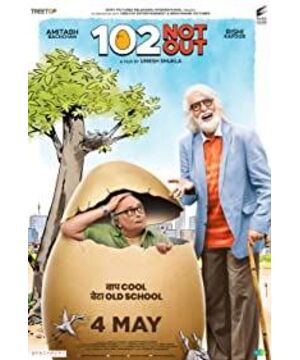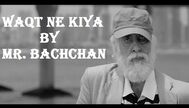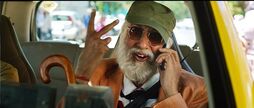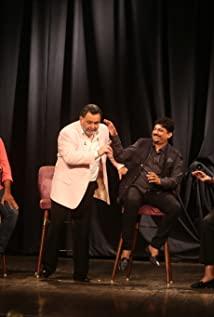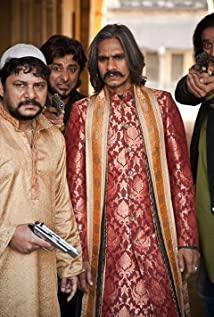In recent years, Indian movies have become more and more well-known to Chinese audiences, starting with "Wrestling!" From "Dad" to "Starting Line", from "Three Fools in Bollywood" to "My God", each one has countless fans.
The topics of these films range from education to religion, from feminism to law, covering a wide range of topics, and they have also achieved good box office results.
This time, "Dad 102 Years Old", which has a slightly different style of painting, focuses the lens on the aging problem that is becoming more and more serious today. It seems to be wrapped in the coat of family affection, but it is actually discussing more profound life issues.
At the beginning of the story, the interesting setting of "Dad sending his son to nursing home" was given.
In order to challenge the Guinness record of longevity in the world, and to prevent his dejected son from disrupting his longevity plan, Dalit, the 102-year-old naughty dad, offered to send his 75-year-old son Babu to a nursing home.
This arrangement is of course absurd to Babu, who loves a stable life and is depressed all day long. But in order to avoid being sent to a nursing home, he had to obey his father's request to complete a series of tasks his father assigned to him-write a love letter to his wife who has been dead for many years, cut off the contact with all doctors, and cut it out. A 65-year old blanket, a happy day trip to Mumbai...
With the completion of all the tasks, the father's true intentions and the son's bumpy experience slowly became apparent.
Like many Chinese old people who "live for children", Babu's life was lonely and depressed.
The son who was raised with hard work accidentally grew into a cold, selfish and unfilial person; the only wife who could talk to the heart, but passed away early...
In the face of these things, all Bab can do is to keep the old and moldy memories, hold the unresolvable sorrow, silently endure, and react negatively.
The frustration of life polished him into a lonely old man who is extremely conservative and afraid of change. Every day, I was trembling, calling the clinic doctor to confirm his physical condition, for fear of getting sick. I would rather everything be done in an orderly manner, not allowing the slightest change, nor accepting any surprises.
Facing the suffering of life, the 102-year-old open-minded dad Dalit has a completely different attitude.
He always wears a gorgeous suit, chatting when he meets people, chic and comfortable. He encouraged Babu to cut up his 65-year old blankets and embrace a new life, and persuaded him that "if your son grows into a bastard, you only need to remember how he was when he was a kid."
As an audience member, I finally felt relieved when I saw that Babu, who had been trying for so many years, finally broke with his son.
In a practical sense, whether they are 102 or 75 years old, whether in China, India or the world, the "empty nest old man" has always been a big problem.
They guarded their one-acre three-quarters of land, lived lonely and quietly, some lacked sufficient love and care, some lacked normal living ability, some were regarded as a burden by their children, and some were bullied and abandoned by the society.
This time, "Dad 102 Years Old" did not deliberately sell the pain, nor did it excessively exaggerate the burden. Instead, it gave some new interpretations from the perspective of the elderly——
As a young man, one must not just focus on his own life and completely ignore the demands of his parents. We have heard too much about the tragedy of "the child wants to support but the relatives do not wait". I hope you don't have such regrets in your life.
If one day, you also become a gray-haired old man, I hope you understand that no matter how old you are, as long as you know how to love life and know how to let go, you can still live happily, wonderfully and freely.
When facing aging, disease and death, the greatest pain is nothing more than we all know that no one can avoid these things.
This may be why, in the "mourning culture" that has been popular in recent years, we will always inadvertently fall into the same anxiety, pessimism and fear as Bab in the film. What we lack is the open-minded, positive and optimistic attitude towards life like Dalit's father.
At the end of the film, these two lovely and warm old men finally reached a precious reconciliation with their lives.
And sitting in front of the screen, you and me, who are going to face aging, disease, and death sooner or later, do not know if you can get any new enlightenment from this movie?
View more about 102 Not Out reviews


